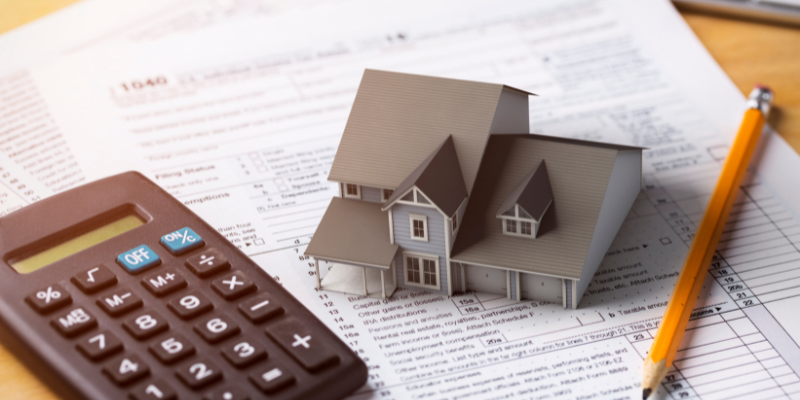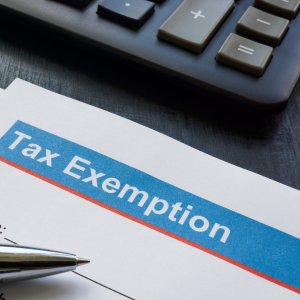
Key Factors Affecting Real Estate Taxes in Atlanta, GA
When selling a house in Atlanta, Georgia, several key factors can significantly impact real estate taxes. First, understanding the local property tax rates is crucial since they vary across different neighborhoods and can influence the overall cost of selling your home.
The assessed value of your property, which is determined by the Fulton County Tax Assessor’s Office or the respective county where you reside, plays a vital role in calculating your tax obligations. Additionally, any capital gains taxes that may apply to the profit from your home sale should be considered, particularly if you have owned and lived in the house for less than two years.
Exemptions such as homestead exemptions can offer some relief by reducing taxable value, but these benefits depend on meeting specific criteria set by Georgia law. Transfer taxes or recording fees might also affect your total costs when finalizing the sale transaction.
The Offer Resolution LLC team can help you navigate these tax implications and ensure you’re financially prepared when selling your house in Atlanta. Understanding how these elements interact will help ensure that you accurately anticipate and manage your real estate tax liabilities.
Understanding Capital Gains Tax on Property Sales in Atlanta, Georgia
When selling your house in Atlanta, Georgia, it’s crucial to understand how capital gains tax can impact your financial outcome. Capital gains tax applies to the profit made from selling a property and is calculated by subtracting the property’s original purchase price plus any improvements from the sale price.
In Atlanta, as in the rest of Georgia and under federal law, homeowners may qualify for an exclusion if they meet certain criteria, such as using the home as a primary residence for at least two out of the five years preceding the sale. This exclusion allows single filers to exclude up to $250,000 of gain and married couples filing jointly up to $500,000.
However, if you’ve owned multiple properties or used your home for rental purposes part-time, different rules might apply that could affect your taxable amount. Keeping accurate records of home improvements and understanding both state-specific regulations and federal guidelines are essential steps when calculating potential capital gains tax liabilities from selling a house in Atlanta.
For homeowners concerned about capital gains taxes and looking to simplify the selling process, working with cash home buyers in Atlanta and nearby cities can be a smart option. These buyers often purchase homes as-is, allowing you to avoid costly repairs and long listing periods, helping you close quickly and reduce the risk of fluctuating tax implications tied to extended market exposure.
Differences Between Short-term and Long-term Capital Gains on Real Estate

When selling your house in Atlanta, Georgia, understanding the differences between short-term and long-term capital gains on real estate is crucial for effective tax planning. Short-term capital gains apply when you sell your property within one year of purchase, and these gains are taxed at ordinary income tax rates, which can be significantly higher than long-term rates.
Conversely, long-term capital gains come into play when the property is sold after holding it for more than one year. These gains benefit from reduced tax rates, typically ranging from 0% to 20%, depending on your taxable income.
The distinction between short-term and long-term capital gains can have a substantial impact on your financial outcome when selling real estate in Atlanta. Additionally, it’s important to consider any applicable exclusions or deductions, such as the $250,000 exclusion for single filers or $500,000 for married couples filing jointly if the home was used as a primary residence for at least two of the five years preceding the sale.
Being informed about these tax implications helps homeowners make strategic decisions and optimize their returns when navigating the real estate market in Georgia.
How to Calculate Property Taxes After Selling a House in Georgia
When selling a house in Atlanta, Georgia, understanding how to calculate property taxes is crucial for ensuring a smooth transaction. Property taxes in Georgia are based on the assessed value of the property, which is determined by local tax assessors annually.
To calculate these taxes after selling your house, you need to know the current assessed value and the applicable millage rate set by your county or city government. In Atlanta and throughout Georgia, property tax bills are typically prorated between the buyer and seller based on the closing date.
This means that if you sell your home midway through the year, you’ll be responsible for paying property taxes up until the sale date, while the buyer covers them for the remainder of the year. It’s important to account for any exemptions or deductions that might apply, such as homestead exemptions, which can lower your tax liability.
Consulting with a real estate attorney or a tax professional familiar with Georgia’s property tax laws can provide further clarity and ensure all calculations are accurately handled during your home sale process.
The Impact of Federal and State Taxes on Home Sales in Atlanta
When selling a house in Atlanta, Georgia, understanding the impact of federal and state taxes is crucial for homeowners. At the federal level, capital gains tax can significantly affect your financial outcome if your home sale results in a profit exceeding the IRS exclusion limits of $250,000 for single filers or $500,000 for married couples filing jointly.
This exclusion applies only if you have lived in the property as your primary residence for at least two of the past five years. Beyond federal taxes, Georgia imposes its state income tax on any capital gains realized from the sale.
The state’s tax rate can vary depending on your total income bracket, adding another layer of complexity to calculating potential liabilities. Additionally, sellers should be aware of transfer taxes and recording fees that may apply at both the county and city levels within Atlanta.
Understanding these various tax implications ensures that homeowners are well-prepared to manage their finances effectively during a home sale transaction in this vibrant real estate market.
Exemptions and Deductions for Home Sellers in Georgia

When selling a house in Atlanta, Georgia, understanding the available exemptions and deductions can significantly impact your tax liabilities. One key exemption to be aware of is the capital gains tax exclusion, which allows homeowners to exclude up to $250,000 of profit for single filers and up to $500,000 for married couples filing jointly, provided they meet certain ownership and residency requirements.
To qualify for this exclusion, the seller must have owned and lived in the home as their primary residence for at least two of the last five years before the sale. Additionally, Georgia does not impose a state-level capital gains tax, which can further enhance potential savings.
Home sellers should also consider itemizing deductions related to selling costs, such as real estate agent commissions, legal fees, and any necessary repairs or improvements made specifically to facilitate the sale of the property. It’s essential for sellers to maintain detailed records of these expenses to maximize their deductions accurately.
Understanding these exemptions and deductions can help reduce taxable income when selling a home in Atlanta. If you have questions about which exemptions or deductions you may qualify for, contact Offer Resolution LLC to get personalized guidance and make the most of your home sale in Atlanta.
Strategies to Minimize Tax Liability When Selling Your Home in Atlanta
When selling your home in Atlanta, Georgia, implementing strategies to minimize tax liability is crucial. One effective approach is to take advantage of the capital gains tax exclusion, which allows homeowners to exclude up to $250,000 of their profit from taxes if they are single or up to $500,000 if married filing jointly, provided they meet the ownership and use tests.
It’s important for sellers to maintain thorough records of home improvements and renovations, as these expenses can be added to the property’s cost basis, potentially reducing taxable gains. Utilizing a 1031 exchange might also be beneficial if you are planning to reinvest the proceeds into another property; this strategy defers capital gains taxes by reinvesting in a similar kind of property.
Consulting with a tax professional who is familiar with Georgia’s specific regulations can offer personalized advice and ensure compliance while optimizing your tax situation. Additionally, understanding local property taxes and how selling timing impacts your tax bill can further help in managing liabilities effectively when selling your Atlanta residence.
Navigating the Georgia Property Transfer Tax During a Sale
When selling your house in Atlanta, Georgia, understanding the intricacies of the Georgia property transfer tax is essential to ensure a smooth transaction. The state imposes a real estate transfer tax, often referred to as the “deed tax,” which is calculated at $1 for every $1,000 of the property’s sale price.
This fee is typically paid by the seller at closing, although negotiations can sometimes shift this responsibility to the buyer. It’s crucial to accurately report the sale price on official documents to determine the correct amount owed.
In addition to the state transfer tax, some counties and cities within Georgia may levy their own additional taxes or fees, so it’s important to consult with local authorities or a real estate professional who is familiar with regional regulations. Being proactive about these requirements helps prevent any last-minute surprises that could delay or complicate the sale process.
Understanding how these taxes integrate into your overall financial picture when selling property in Atlanta ensures compliance with state and local laws while maximizing your profit from the transaction.
Important Deadlines and Filing Requirements for Home Sale Taxes in GA

When selling your house in Atlanta, Georgia, it’s crucial to be aware of the important deadlines and filing requirements associated with home sale taxes. For federal tax purposes, any capital gains from the sale must be reported on your income tax return for the year in which the sale occurs.
In Georgia, this means you need to file your state income tax return by April 15th of the year following the sale, unless an extension is granted. To determine if you owe capital gains taxes, consider the length of time you’ve owned and lived in your home; meeting specific criteria may qualify you for exclusions under the IRS’s primary residence exemption.
It’s also essential to maintain thorough records of all relevant documents, such as closing statements and receipts for improvements made to enhance your home’s value, as these can affect your taxable gain calculation. Additionally, if you’re subject to estimated tax payments due to a significant gain from your home sale, ensure timely payments throughout the year to avoid penalties.
Understanding these deadlines and requirements is vital for complying with both state and federal regulations while optimizing potential tax benefits when selling property in Atlanta.
Common Mistakes to Avoid When Paying Taxes After Selling a Home in Georgia
When selling a home in Atlanta, Georgia, it’s crucial to understand the common tax mistakes that can lead to unnecessary financial burdens. One frequent error is failing to account for capital gains tax, which applies if your home has appreciated significantly in value since purchase.
Many sellers overlook the importance of keeping accurate records of home improvements, which can be used to adjust the cost basis and potentially reduce taxable gains. Another mistake is not taking advantage of the primary residence exclusion rule, which allows you to exclude up to $250,000 ($500,000 for married couples) of profit from taxes if you’ve lived in the house for at least two out of the last five years.
Additionally, some sellers neglect to consider how state and local taxes might differ from federal requirements, leading to unexpected liabilities. Misunderstanding or ignoring transfer taxes specific to Georgia or failing to properly report all necessary documents during tax season can also create complications.
Consulting with a knowledgeable real estate tax professional well-versed in Georgia’s specific regulations can help mitigate these issues and ensure compliance with all applicable tax laws when selling your property.
To avoid these costly tax mistakes, many homeowners choose to work with investor home buyers in Georgia and surrounding cities who can offer fast, straightforward sales without the typical complexities of a traditional listing. This approach not only reduces the time your property is on the market but can also help you better plan for any tax obligations by providing a clear, hassle-free transaction.
Utilizing the Primary Residence Exclusion for Reduced Tax Burden
When selling your house in Atlanta, Georgia, understanding how to utilize the primary residence exclusion can significantly reduce your tax burden. The IRS allows homeowners to exclude up to $250,000 of capital gains from the sale of their primary residence if they are single and up to $500,000 if they are married and filing jointly.
To qualify for this exclusion, you must have owned and lived in the home as your main residence for at least two out of the five years preceding the sale. This rule is particularly beneficial for Atlanta homeowners looking to maximize their profits while minimizing taxes.
By meeting these criteria, sellers can strategically plan their home sales and potentially save thousands on federal taxes. It’s crucial for homeowners in Georgia to keep thorough records of ownership and residency, as well as any improvements made to the property, which can further enhance their ability to benefit from this lucrative tax exemption when selling their home.
How Local Atlanta Property Market Trends Affect Your Tax Obligations
Understanding how local Atlanta property market trends impact your tax obligations is crucial when selling your house. The dynamic real estate market in Atlanta, Georgia, directly influences the property’s sale price, which subsequently affects capital gains taxes.
When property values rise due to favorable market trends, sellers may experience increased profits from their home sales. However, this also means potentially higher capital gains taxes if the profit exceeds the IRS exemption limits.
Additionally, market fluctuations can affect property assessments and local tax rates, further impacting your overall tax burden. Staying informed about these trends allows homeowners to strategize effectively for potential tax liabilities.
Collaborating with a knowledgeable real estate agent or tax professional who understands Atlanta’s unique market conditions can provide valuable insights into optimizing your financial outcomes while complying with state and federal tax regulations.
Reporting Real Estate Transactions on Your IRS 1040 Form: A Guide for Sellers
When selling your house in Atlanta, Georgia, it’s crucial to understand how to report the transaction on your IRS 1040 form correctly. The sale of real estate can have significant tax implications, and knowing how to navigate these is key to ensuring compliance with federal tax laws.
You must determine whether you qualify for any exclusions, such as the primary residence exclusion, which allows you to exclude up to $250,000 of gain if you’re single or $500,000 if married filing jointly from the sale of your home. This exclusion applies only if you meet specific criteria regarding residency and ownership.
Accurately reporting the transaction involves calculating the adjusted basis of your property, which includes the original purchase price plus any capital improvements made over the years. You’ll need this figure to determine your capital gains or losses.
Once you’ve calculated your gain or loss, it should be reported on Schedule D of the IRS 1040 Form. Additionally, completing Form 8949 is necessary for detailing each transaction involving capital assets like real estate.
It’s important to maintain thorough records of all associated costs and documents related to the sale, as they support your calculations and claims during a potential audit by the IRS. Understanding these steps will help ensure that you’re meeting all obligations when reporting real estate transactions on your IRS 1040 Form after selling a house in Atlanta.
FAQs
What are the taxes incurred when selling a house in Georgia?
Tax implications are equally as important as the actual listing price when considering selling your house in Atlanta, Georgia. The most important tax to bear in mind is the federal capital gains tax—this tax is incurred on any house whose value has increased post-purchase.
Georgia, the state, has its capital gains tax on any profit made. However, there are certain exclusions available for homeowners. For instance, if the owner has resided in the house for at least two out of the five years before selling it, the owner can exclude $250,000 in capital gains tax if filing individually and $500,000 if filing jointly, in case the owner is married.
Furthermore, be mindful of property taxes that may be payable upon closing. If you’re a homeowner looking to sell your house in Atlanta, it is highly recommended that you speak to a tax authority well-versed in the federal and Georgia state laws to estimate obligations and possible credits around the transaction.
These complicated rules and regulations regarding taxation need to be understood, and if so, the taxpayer can try to achieve the best gains while staying within legal limits.
Will I Owe Taxes to the IRS When I Sell My House?
Like any other city, when selling your house in Atlanta, Georgia, you also need to consider the tax aspect and whether you owe anything to the IRS. Capital gains tax may apply to homeowners who profit from the sale of their residential property.
The IRS does provide exclusions that can lower or eliminate this tax liability. In most situations, homeowners who have occupied a residence as their primary home for at least two out of the past five years can exclude up to $250,000 of gain if single or $500,000 if married filing jointly for tax purposes.
As a result, a large number of homeowners in Atlanta may not have to incur any federal tax liability on the proceeds received from the sale of their home. Owners should maintain a detailed account of any expenses incurred upgrading the property, as these will increase the cost basis and decrease taxable profit.
When selling your house, optimizing your financial outcome while ensuring tax compliance often requires working with an experienced Georgia tax advisor or a certified realtor in the state. They would assist the seller with these issues.
Does a seller pay transfer tax in Georgia?
Real estate transfer tax is one of the many costs involved in any property transaction. Generally, sellers are liable for the tax payment for real estate in Georgia unless negotiated otherwise.
As per Georgia tax laws, the tax applicable to a seller is based on the sale transaction of the property. Every 1,000 increases the tax by 1 dollar, plus 10 cents for the transaction reflecting every 100 dollars. Therefore, the seller of a 250,000 home will need to pay around 250 dollars as tax.
In negotiating a sale, sellers need to consider all relevant factors that might help in derailing any unforeseen challenges. Knowing about tax obligations allows sellers ample time to come up with their pricing strategies.
Atlanta agents and attorneys may have beneficial offers that can help lessen the costs of compliance while lawfully changing the spending limits through negotiation or otherwise.
What Is the Exclusion for Selling a House in Georgia?
When selling a home in Atlanta, Georgia, understanding the capital gains exclusion, from a tax perspective, is very important. Homeowners can take advantage of the home sale exclusion, which the IRS provides as a significant tax benefit.
If you have lived in an Atlanta residence for a minimum of two years within the last five years, you can use the exclusion of paying capital gains taxes up to $250,000 for a single filer or $500,000 for a married couple filing jointly. This is true not only in Georgia but in the rest of the United States as well. It is worth noting that this exclusion applies only to primary residences and not investment properties.
In order to sell your house in Georgia and take advantage of the primary home tax exclusion for paying capital gains taxes, you must pass the ownership and use tests set by federal regulations. In so doing, sellers in Atlanta can greatly lower their taxable income and potentially avoid capital gains tax entirely on the property sold.
Whether you are selling or buying a home, you should always seek the advice of a qualified tax specialist who understands both federal law and Georgia tax law to safeguard your interests when it comes to selling your property.
Does your house need to be sold? Do you want to sell quickly, avoid costly renovations, or have a more effortless sale? We are here to assist you. At Offer Resolution LLC, we take care of the details and simplify the entire process while making fair cash offers. Whether you are ready to sell or just have some questions, reach out to us at (404) 236-6210 for a free cash offer. Begin now!
| LIENHOLDER | EQUITABLE LIENS | KANSANS | STATE OF KANSAS | MEDICAL SERVICES | HEALTH CARE |
| MEDICAL CARE | BALANCE BILLING | INSURANCE COMPANY | INSURER | FORECLOSE | STATUTES OF LIMITATIONS |
| ATTORNEY | LAWYER | LEGAL COUNSEL | LITIGATION | HEALTH CARE PROVIDER | INJURIES |
| INJURY | COMPENSATION | DAMAGES | ACTUAL DAMAGES | WAGES | PAID OFF |
| PERSONAL INJURY | PERSONAL INJURY CLAIM | MARRIAGE | GARNISHING WAGES | FINANCES | |
| CREDIT COUNSELOR | COPAYMENTS | CO-PAYMENT | SOLOSUIT | INFORMATION | BORROWER |
| CONTRACTS | COMPLAINT | BUDGETING | TRUST | TOOL | TEXAS |
| TAX | TAXATION | SUMMONS | COURT SUMMONS | REPAYMENT PLANS | REAL PROPERTY |
| MEDICARE | MASSACHUSETTS | HEALTH CARE PROVIDERS | HEALTH PRACTITIONER | HEALTH CARE PRACTITIONER | GFE |
| GOOD FAITH ESTIMATE | GOOD FAITH | DEDUCTIBLES | DEBT FORGIVENESS | CONSUMER PROTECTION LAWS | COMPANY |
| CASH | CREDIT INSTITUTIONS | ATTORNEY FEES | ATTORNEY’S FEES | THE UNITED STATES | TERMS OF USE |
| RESEARCH | PRIVACY | PRACTITIONER | PHYSICAL THERAPY | PHYSICAL THERAPIST | DOCUMENT |
| CREDIT REPORT | IN MISSOURI IF | A PAYMENT PLAN | TERMS OF USE | MY HOUSE IN MISSOURI | FOR UNPAID MEDICAL BILLS |
| IN MISSOURI IN MISSOURI | YOUR HOUSE IN MISSOURI | HOUSE GO INTO FORECLOSURE | AND REAL ESTATE IN | LAWYER TO SELL MY | DOCUMENTS NEEDED TO SELL |
| CLAIM DEED ON A | ESTATE AFTER HOUSE IS | MEDICAL BILLS TAKE YOUR | CLAIM ABANDONED PROPERTY IN | IF THE DEBT IS | AN ESTATE AFTER HOUSE |
| PROBATE AND REAL ESTATE | TO CLAIM ABANDONED PROPERTY | DEED ON A HOUSE | I NEED LAWYER TO | TERMS OF USE AND | DOES A FORECLOSURE TAKE |
| SETTLE AN ESTATE AFTER | CAN MEDICAL BILLS TAKE | QUIT CLAIM DEED ON | A FORECLOSURE TAKE IN | TO SETTLE AN ESTATE | DAMAGE TO PROPERTY IN |
| ADMINISTRATOR OF ESTATE IN | LEGAL ACTION TO COLLECT | GO INTO FORECLOSURE IN | A QUIT CLAIM DEED | NEED LAWYER TO SELL | SALE OF PROPERTY IN |
| DO I NEED LAWYER | COURT ORDERED SALE OF | LONG DOES A FORECLOSURE | BECOME ADMINISTRATOR OF ESTATE | TENANT DAMAGE TO PROPERTY | ORDERED SALE OF PROPERTY |
